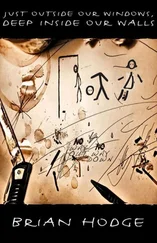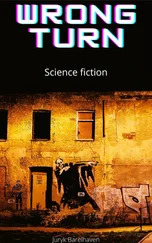If he had fallen prey to Strong Man syndrome, John was not the only smitten one. Bubbling with hope, the entire country needed, for a moment in history, to forget what it knew about Kibaki and his chums. Nations must indulge in periods of selective amnesia if they are ever to progress. History suggests that sclerotic systems are not transformed by untainted outsiders, but by those within, and usually by those who have been within the system so long they are associated with its worst abuses, rising thereby to the positions of power that make it possible to bring about change. Mikhail Gorbachev was such a figure in the Soviet Union – a seemingly loyal party stalwart who turned radical once he had the means to see his novel vision through.
On the surface, there was little reason to view Kibaki, who had played the Kenyan system to the hilt as both vice president and finance minister, as a likely champion of reform. The first African to graduate from the London School of Economics, a former lecturer at what became Uganda's respected Makerere University, one of the drafters of independent Kenya's constitution, Kibaki was routinely described as ‘brilliant’. But his glory days lay firmly behind him. Having swallowed one political humiliation after another under Moi, his preference for the unconfrontational role of Mr Nice Guy had won him the scornful sobriquet of ‘General Coward’ from political rivals, who quipped that Kibaki had never seen a fence he couldn't sit on. Well-heeled, well-oiled, Kibaki's image as a prosperous has-been was so entrenched by the mid-1990s that it never occurred to Western journalists like myself to request an interview. Why bother? The nominal head of the opposition was reported to be a sozzled regular at the Muthaiga Golf Club, interested in little more than the size of his handicap. While he regularly drove to parliament, he rarely performed inside the chamber, preferring, it was said, a long snooze at his desk. Yet suddenly this deeply disappointing politician was recast in the role of national saviour by a coterie that, believing it held the moral high ground, thought nothing was now impossible. ‘Go home, tend to your goats and watch us govern this country,’ justice minister Kiraitu Murungi told Moi, courting hubris with every patronising word.
‘They got lost in their own rhetoric,’ says Ndii, with a shrug. ‘Because they had the instruments of state, they thought they could change the world. It wasn't just John, all of them thought they were going to fix everything. Me, I was not a believer.’ Mwalimu Mati also shakes his head over what looks, in retrospect, like the most bizarre of collective delusions. ‘It was a type of mass hallucination. People went a bit crazy. No one stopped to consider how Kibaki had made his own fortune. We should be suspicious of finance ministers, especially from the past.’
It may have been a case of the ultimate idealist meeting the ultimate pragmatist, but John did not recognise the gulf in perspectives. Bonding with Kibaki came disconcertingly easily. A politician with none of Moi's instinctive understanding for the ordinary wananchi , Kibaki was an unrepentant intellectual snob. Whereas Moi, the former headmaster, was regarded as a leader who ‘knew how to talk to Kenyans with mud between their toes’, Kibaki was more likely to hail them as ‘ pumbavu ’ – fools. He recognised and respected the rigorous quality of thought in the young man, who had strayed into State House at more or less the same age Kibaki himself had ventured into politics. There was also a certain inbuilt familiarity to the relationship. John's accountant father had campaigned on behalf of Kibaki's Democratic Party, and while the Kibaki and Githongo families were not exactly intimate, their children had gone to the same schools, they shared the same faith, they belonged to the same patrician milieu.
In any case, affability came naturally to Kibaki, who possessed none of Moi's gruff abrasiveness. While other men commanded loyalty through the commanding magnetism of their personalities, Kibaki's style was one of diffuse, woolly bonhomie. He had always shrunk from making enemies, the head-on collision. ‘He's a very unstuffy guy, very laid back and easy to shoot the breeze with,’ John remembers. The two regularly breakfasted together, and there were also many dinners, just the two of them tête-à-tête. Kibaki felt relaxed enough in John's company to sit with him in the presidential bedroom, discussing politics, the price of oil, world affairs – never anything personal. In John's slightly star-struck eyes – who, after all, could spend quite so much time near the nation's most important man without feeling a little giddy? – the president came to assume the role of alternative father figure, favourite uncle. If John used the respectful ‘ Mzee ’ (Elder) when addressing the president, Kibaki addressed his anti-corruption chief as ‘ Kijana ’ – ‘young man’, a term that almost always comes tinged with paternal affection. ‘I used to think that relationship was very special. I had a huge amount of affection for Kibaki. Then I realised Kibaki was like that with everyone.’ Looking back, John would come to realise that he had allowed himself – as the overly cerebral often do – to be beguiled as much by a symbol as an individual. ‘At that time, everyone was dancing. Everyone was right to dance.’ Encapsulating the hope of a jubilant post-Moi nation, what Kibaki represented was more important than who he actually was.
John had the goodwill of the head of state, the envy of many veteran political players, his own staff and budget. It seemed, on the face of it, a great set-up from which to take on the forces of darkness. But within weeks of Kibaki's inauguration, the evil genie Moi deposited in State House snickered and lashed out, delivering a blow so devastating, so sudden, that the presidency, it could be argued, never recovered. Kibaki's presidency was delivered premature, shrivelling before it had a decent chance to take its first real breaths. A crippled and maimed thing, it would be too worried about its own survival to care overmuch about anything else.
The first Kenyans heard of it was an announcement, in late January 2003, that the president had been admitted to Nairobi Hospital to have a blood clot – after-effect of his car accident – removed from his leg. Kibaki would continue to carry out his official functions from hospital, his personal doctor Dan Gikonyo assured the public, as long as he did not get overstressed. He suffered from high blood pressure and had been advised, amongst other things, not to wave his arms around. The statement failed to reassure. ‘I don't want to cause alarm but I am worried about our president's health,’ a perceptive Kenyan blogger wrote in February, noting that Kibaki had not addressed the nation for a month, remaining silent even when a minister was killed in an air crash. ‘I have this nagging feeling that State House is not telling all.’ The blogger quoted eyewitness accounts of an incoherent president checking out of hospital and embarking on a strange two-hour meet-the-people drive around Nairobi. ‘Something is wrong, something is terribly wrong,’ he fretted.
Kibaki had, in fact, been felled by a stroke. Any debate about how many terms he hoped to serve was suddenly rendered irrelevant – would he even see one through to the end? When John Githongo went to visit the Old Man in hospital, he was shocked. Whatever criticisms had been voiced of Kibaki in the past, everyone had agreed on his extraordinary intellectual acuity. Now John found him watching television cartoons. He never mentioned his new concern to friends, but the worrying vision of Kenya's top statesman happily transfixed by children's programming lingered in his mind: ‘You never completely recover from a stroke like that.’ Once Kibaki checked out of hospital, John started briefing him both orally and in writing, so concerned had he become over his boss's ability to retain information.
Читать дальше












